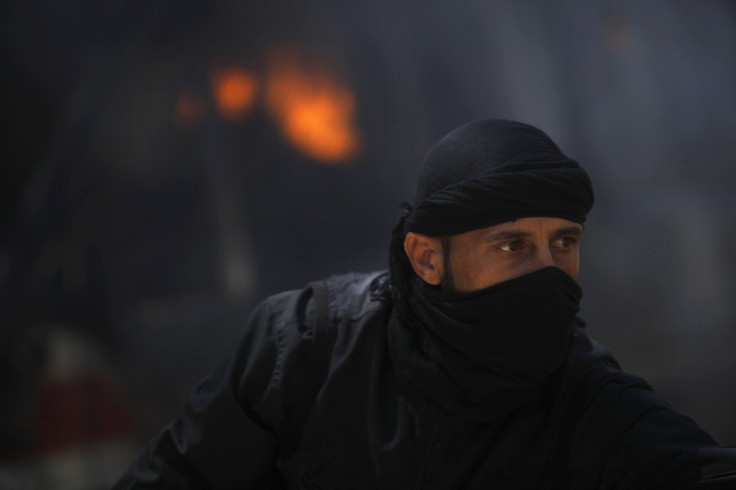US Airstrikes In Syria Weaken ISIS, But Strengthen Support For Al Qaeda Offshoot

ISTANBUL --U.S.-led airstrikes in Syria may be undercutting the Islamic State group’s power in the country, but they are strengthening support for the Al Nusra Front, the al Qaeda offshoot in the country, members of the Syrian opposition said Tuesday. Increased support for the Al Nusra radicals is delegitimizing the U.S.-backed moderate opposition, said the activists, who are active in the northwestern province of Idlib, near the Turkish border.
"People are becoming more sympathetic to Al Nusra because they were targeted in the attacks,” Khalid Saleh, one of the main leaders of the Harakat Hazzm Movement, the main U.S.-backed rebel group in Syria, said.
Jabhat al Nusra, also known as Al Nusra Front or to many Syrians just “Nusra,” is led by former al Qaeda operatives who fought with Osama Bin Laden in Afghanistan. That affiliation has prompted the U.S. and its coalition allies to target, in addition to ISIS, Al Nusra strongholds in Syria last week, killing several of its leaders.
But those strikes are having a paradoxical effect: They are helping Al Nusra as they weaken ISIS. “Nusra was falling apart before the airstrikes, but now they won’t. As ISIS falls, Al Nusra will have cells all over the country. They are everywhere,” said Rami Jarrah, a Syrian activist and journalist.
With ISIS presence decreasing in northern Syria, many people who supported its ideology, if not necessarily its hyper-violent practices, are now supporting Al Nusra. More and more conservative members fighting under the umbrella of the Free Syrian Army rebel coalition are supporting the group, Jarrah said.
Although less outwardly violent than ISIS, Al Nusra has been accused of summary executions and torture by international human rights organizations.
Its main internal adversary is the Hazzm Movement, which formed in January of this year and was one of the first opposition groups to receive U.S. weapons, which included ammunition, Kalashnikovs, and anti-tank weapons. It fields about 4,000 fighters, the majority defected Syrian Army soldiers, and operates within the National Coalition of Syrian Revolution and Opposition Forces. Groups within the coalition receive weapons from Saudi Arabia, the U.S., and money from Qatar.
But, Saleh said, they should have received more funds and weapons, and in that case they would have been able to succesfully fight ISIS and Al Nusra themselves. But the U.S. has so far not approved the Hazzm plan, Saleh said, even though the option was presented to Washington before the airstrikes began. That plan, he said, would have "cost less and been more effective" than airstrikes -- which, in fact, Hazzm has even condemned publicly.
Despite their reliance on U.S. support, the group released a statement last week that said the attacks, though they were helping defeat ISIS, were strengthening President Bashar Assad.
“The sole beneficiary of foreign interference in Syria is the Assad regime, especially in the absence of any real strategy to topple it. The regime will spare no effort to target civilians in its attempt to rehabilitate itself internationally,” the statement said. “The continuation of singular decision making in an effort to win international public opinion, will not succeed in uprooting extremism but encourages its growth.” That U.S.-led approach has hurt the rebels' fight against Assad, according to Saleh. "Now we have been set back 6 to 8 months," he said.
Now, instead, Hazzm Movement fighters are “waiting until the airstrikes play out,” Saleh said.
But in Syria's fluid civil war, where allegiances shift often in a complex web, there is another variable to consider: What the Al Nusra fighters themselves will do. “Most of the members of Jabhat Al Nusra are cheap. They will go left or right,” Jarrah said.
© Copyright IBTimes 2024. All rights reserved.





















